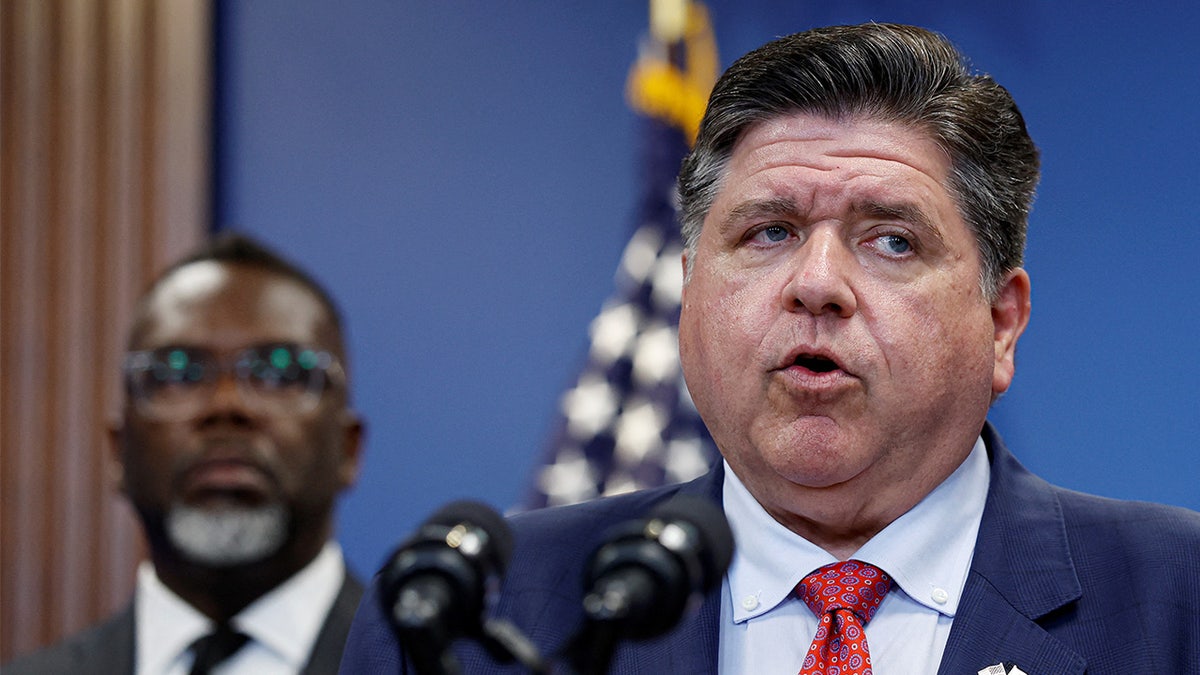Chicago Officials Seek Federal Help on Crime as Mayor Battles Trump Over Possible Surge
Aldermen and some local leaders call for more enforcement and funding while Mayor Brandon Johnson and Gov. J.B. Pritzker oppose a federal takeover that could include troops or immigration agents.
Top Chicago officials and some city aldermen urged a stronger federal partnership to address rising crime Wednesday, even as Mayor Brandon Johnson and Illinois Gov. J.B. Pritzker warned against what they described as a potential federal takeover envisioned by President Donald Trump.
A number of aldermen told reporters and local media they want more resources and a stronger law enforcement presence but drew a line at deploying National Guard troops or immigration authorities onto city streets. "100% need help, 100% want help. I just don’t wanna see 18, 19-year-old kids on the streets of Chicago with M-16s, I believe that’s a recipe for disaster, so my preference would be money to hire more police," Alderman Nicholas Sposato said on Fox News Channel’s America Reports. Sposato is one of two independents on the 50-member Chicago City Council; 48 members are Democrats.

President Trump has signaled that any federal response could include a surge of law enforcement personnel, potentially encompassing National Guard units and immigration authorities, prompting a sharp rebuke from local and state Democratic leaders. Mayor Johnson and Gov. Pritzker have publicly opposed what they described as an intrusion on local authority and a politically motivated effort to portray the city as lawless.
At a Sept. 2, 2025 press conference amid reports of possible federal deployments to Chicago, Gov. Pritzker spoke against the move, framing the issue as one of local control and public safety strategy. Some aldermen, while critical of a militarized response, said they want federal support in the form of funding, intelligence sharing and assistance with prosecutions for gun crimes and organized violence.
Aldermen's comments reflected divisions within city leadership over the best path to curb violent crime. Several lawmakers said additional federal resources could be useful if tailored to complement local policing efforts rather than supplant them. Others stressed the need for investment in community-based interventions and expanded hiring to bolster the Chicago Police Department.
The discussion comes amid heightened national attention on crime in Chicago, which has long been a focal point in broader debates over urban crime, policing and federal intervention. Federal involvement in local law enforcement has precedent in task forces and joint investigations, but the prospect of deploying troops and immigration agents to handle day-to-day public safety operations drew immediate pushback from city and state officials.
Mayor Johnson has argued that sending the National Guard or federal immigration agents into neighborhoods would worsen tensions and distract from local strategies tailored to community needs. Supporters of a larger federal role counter that federal manpower and resources can help disrupt illegal gun trafficking and assist prosecutions that local agencies may not have the capacity to pursue alone.
Chicago's political leaders face competing pressures: calls from business owners, residents and some council members for more rapid crime reduction, and concerns from civil rights advocates and local officials over federal overreach and the potential for escalated confrontations. The city council's overwhelmingly Democratic composition underscores the political alignment that has shaped reactions to the president's threat of intervention.
Officials at the federal level have not released a definitive plan for a surge, and White House aides have described the president's statements as part of a broader push to address crime in major cities. Local leaders said they remain open to federal assistance that is coordinated with city and state authorities and strictly limited to nonmilitary, law-enforcement support.
How the dispute will resolve remains uncertain. City officials and state leaders have vowed to continue negotiations with federal counterparts while defending Chicago's prerogatives over policing decisions. Meanwhile, aldermen and community leaders said they will press for immediate investments in hiring officers, targeted enforcement, and programs aimed at reducing gun violence as the debate over federal involvement continues to play out on the national stage.
